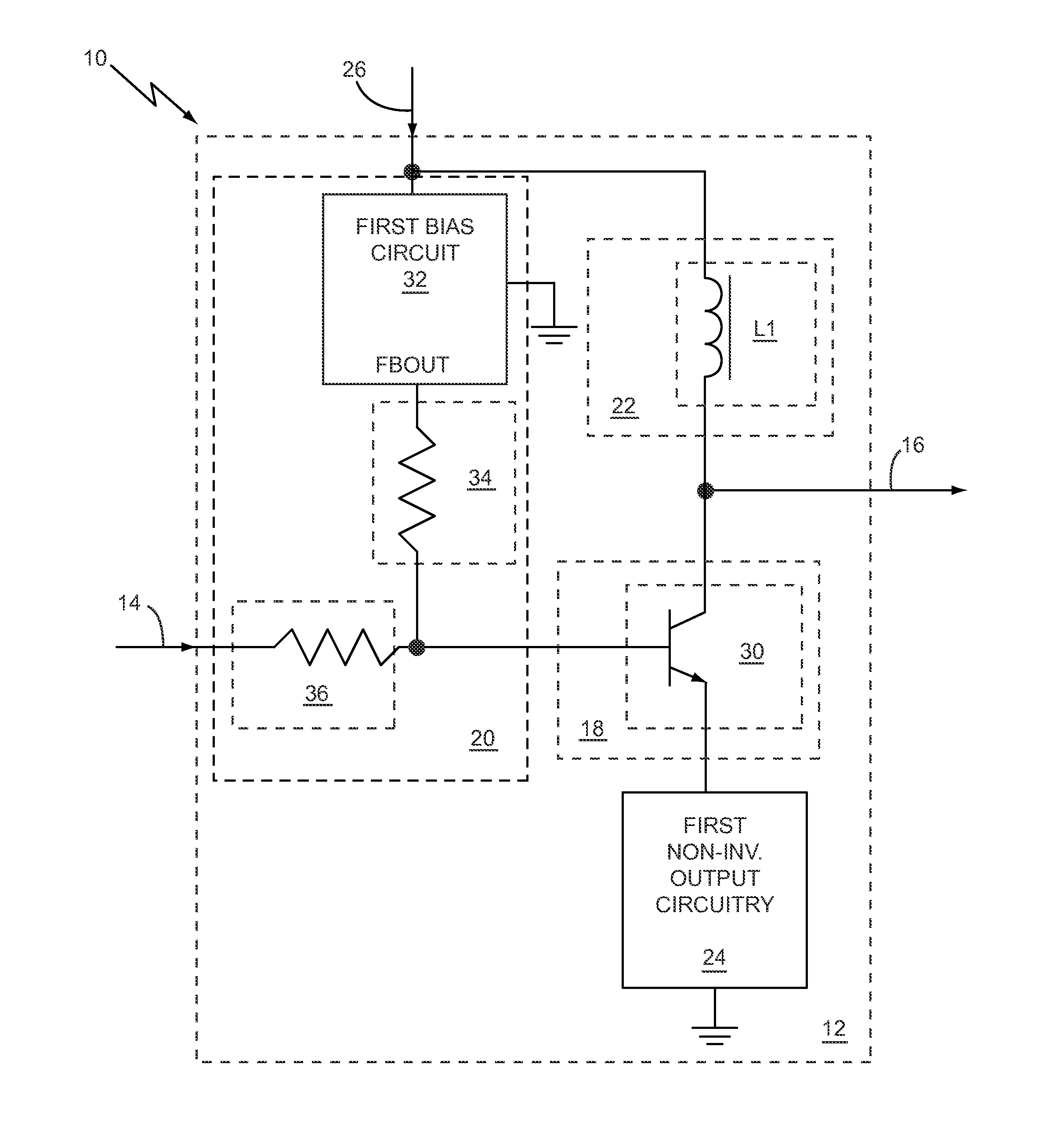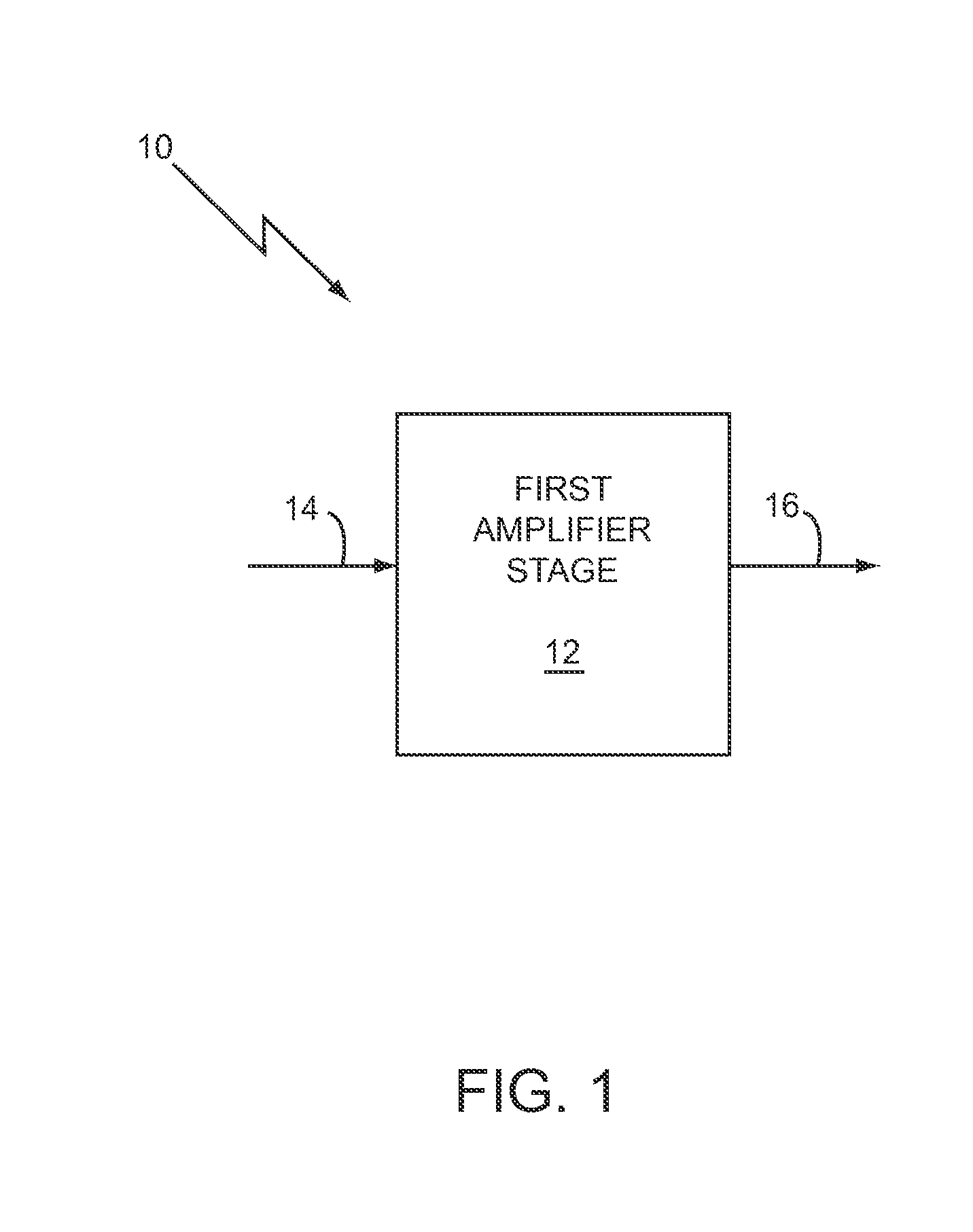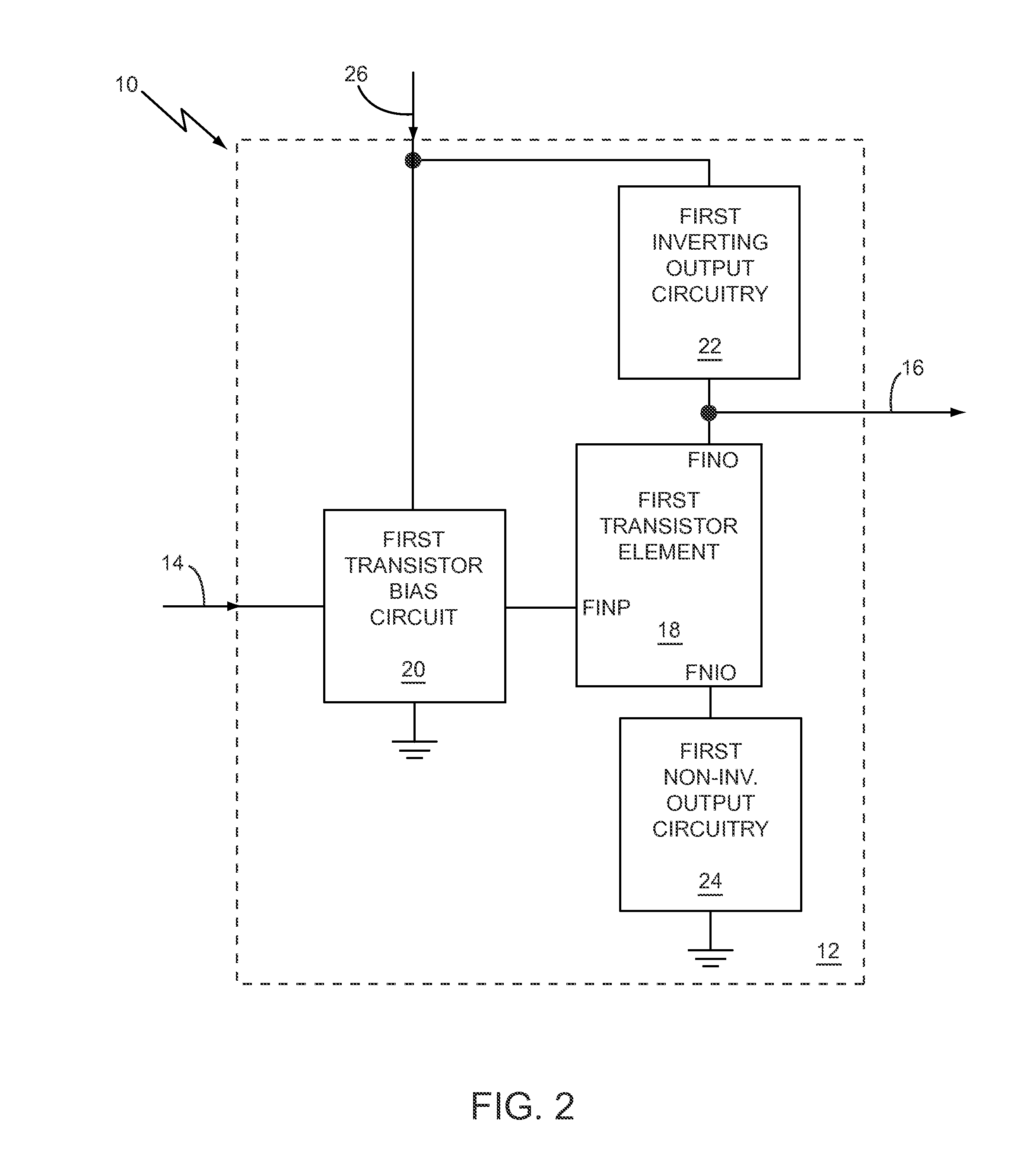Bias-based linear high efficiency radio frequency amplifier
a radio frequency amplifier and bias-based technology, applied in amplifiers, amplifiers with semiconductor devices only, amplifiers with semiconductor devices, etc., can solve the problems of reducing battery capacity, reducing battery size, weight, or both, and increasing power consumption, so as to increase overall operating efficiency, reduce operating efficiencies, and increase operating efficiencies
- Summary
- Abstract
- Description
- Claims
- Application Information
AI Technical Summary
Benefits of technology
Problems solved by technology
Method used
Image
Examples
Embodiment Construction
[0005]The present disclosure relates to RF power amplifier circuitry that may operate as either a Class AB amplifier or as a Class B amplifier based on a magnitude of RF output power provided by the RF power amplifier circuitry. A transistor bias circuit in the RF power amplifier circuitry may control transitioning between operating as the Class AB amplifier and operating as the Class B amplifier. When the magnitude of the RF output power is below a first threshold, the RF power amplifier circuitry may operate as a Class AB amplifier, and when the magnitude of the RF output power is above the first threshold, the RF power amplifier circuitry may operate as a Class B amplifier.
[0006]Class B amplifiers may have higher operating efficiencies than Class AB amplifiers; however, Class B amplifiers may not meet linearity requirements when operating at low output power levels. Conversely, Class AB amplifiers may meet linearity requirements at all output power levels, but may have reduced op...
PUM
 Login to View More
Login to View More Abstract
Description
Claims
Application Information
 Login to View More
Login to View More - R&D
- Intellectual Property
- Life Sciences
- Materials
- Tech Scout
- Unparalleled Data Quality
- Higher Quality Content
- 60% Fewer Hallucinations
Browse by: Latest US Patents, China's latest patents, Technical Efficacy Thesaurus, Application Domain, Technology Topic, Popular Technical Reports.
© 2025 PatSnap. All rights reserved.Legal|Privacy policy|Modern Slavery Act Transparency Statement|Sitemap|About US| Contact US: help@patsnap.com



